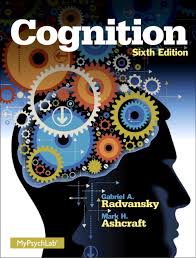 Editors: Margaret Chon, Pedro Roffe, and Ahmed Abdel-Latif
Editors: Margaret Chon, Pedro Roffe, and Ahmed Abdel-Latif
Publisher: Cambridge University Press – 437 pages
Book Review by: Sonu Chandiram
The United Nations has an ambitious Sustainable Development Goals (SDGs) program consisting of 17 goals that it wants its member-states to accomplish by the year 2030. It is also known as the 2030 Agenda. The goals include fighting hunger, reducing poverty, enhancing health, furthering education, reducing global warming, assuring adequate water supply, improving sanitation, conserving energy, guiding sustainable urbanization, protecting the environment, reaching gender equality and ensuring social justice for all.
Through the SDGs program, the UN wants to achieve, among others, these big goals of sustainable development:
- Improve global health
- Facilitate access to scientific information (as a means to faster economic growth
- Encourage the diffusion of climate change technologies
One of the most prominent ways to accomplish the above lofty goals, the SDG program states, is through public-private partnerships, or in short, PPPs.
However, accessing some parts of the scientific information needed to accomplish the goals of this UN program includes getting data that may be protected by intellectual property laws.
In the inside flap of this unique, useful, and very important book developed to improve the lives of people all over the globe, it is stated:
- The intellectual property dimensions and implications of these efforts, remain under-examined
- Linking global governance of knowledge via intellectual property to the SDGs, this is the first book to chart the activities of PPPs at this important nexus; Public-private partnerships play an increasingly prominent role in addressing global development challenges
- Through selective case studies, this illuminating work contributes to a better understanding of the relationships between PPPs and intellectual property considered within a global governance knowledge framework, that includes innovation, capacity-building, technological learning, and diffusion
Twenty-seven specialists in areas of knowledge covered in this book, authored or coauthored the 19 chapters of this book named below to give you a broad overview of the contents of this of this highly goal-directed work. The contributors are from, or have studied at, or worked in, the United States and 15 other countries – Belgium, Canada, Chile, China, Egypt, Finland France, Holland, Hong Kong, India, Mexico, Singapore, Switzerland, the United Kingdom, and Vietnam.
Introduction
- Changing the Triple Interface of Public-Private Partnerships, Global Knowledge Governance, and Sustainable Development Goals
- Part I. Public Health
- Public-Private Partnerships as Models for New Drug Research and Development: The Future is Now
- Driving Innovation for Global health through Multi-stakeholder Partnerships
- Creating, Managing, and Advancing Collaborations: The Road to Successful Partnerships
- Patent Pooling in Public Health
- Intellectual Property in Early Phase Research Public-Private Partnerships in the Biological Sector
- Part II. Education, ICT, and Libraries
- A Publisher Perspective on a Public-Private Partnership for Access to Biomedical Information
- A Sustainable Development Agenda for the World Intellectual Property Organization: Networked Governance and Public-Private partnerships
- The Marrakesh Treaty, Public-Private Partnerships, and Access to Copyrighted Works by Visually Impaired Persons
- Intellectual Property and Public-Private Partner Motivations
- Part III. Environmental Issues: Green Technologies and Agriculture
- The Rise of Public-Private Partnerships in Green Technologies and the Role of Intellectual Property Rights
- Innovation Law and Policy Choices for Climate Change-Related Public-Private Partnerships
- How Do Climate Change and Energy-Related Partnerships Impact Innovation and Technology Transfer? Some Lessons for the Implementation of the UN Sustainable Development Goals
- One Size Does Not Fit All: The Roles of the State and the Private Sector in the Governing Framework of Geographical Indications
- Part IV. Governance and Institutional Design Perspectives
- Public-Private Partnerships and Technology Sharing: Existing Models and Future Institutional Designs
- From the MDGs to the SDGs: Cross-Sector Partnerships as Avenues to Development in the UN System
- Sustainable Development through a Cross-Regional Research Partnership
- Intellectual Property, Human Rights, and Public-Private Partnerships
- Conclusion
- The Triple Interface; Findings and Future Directions
This book is unique because the idea of bringing about development and better lives, particularly for the hungry and poor of the world, can be made a reality quicker and with better outcomes through a partnership between businesses and governments. When businesses, most of which are goal-oriented, own the goals that they have agreed upon with their respective governments in different countries who also own those goals, the speed with which those goals can be reached is faster, as it has been shown in numerous instances in the past. This is truly a worthwhile book for all to read.
Editors:
Margaret Chon is the Donald and Lynda Horowitz Professor for the Pursuit of Justice, and former Associate Dean for Research at Seattle State University School of Law, where her current research explores the relationship of intellectual property to human and sustainable development.
Pedro Roffe is a Senior Fellow at the International Center for Trade and Sustainable Development, where his work focuses on intellectual property, foreign investment, transfer of technology, and international economic negotiations
Ahmed Abdel-Latif is the Chief of the Office of the Director General of the International Renewable Energy Agency. Previously, he was Senior Programme Manager for Innovation, Technology, and Intellectual Property at the International Center for Trade and Sustainable Development.







